Back then, being discharged from the payroll was a peace of mind, but having to sign a labor contract could mean being pushed out onto the streets at any time. That was the case for ordinary workers, and contract journalists were even rarer. As Vietnam Revolutionary Press Day, June 21, approached, Nguoi Dua Tin reporter met one of those “rarities” of that day - Journalist Dam Minh Thuy (former reporter for Lao Dong newspaper, Vietnam Economic Times) and shared with him the years of living and working as a “contract journalist”.
Unemployed. Went to Soc Son for new recruit training. A friend gave him a flyer for a recruitment exam for reporters of the Labor-Social Magazine. Dam Minh Thuy “dared” to register for the exam. Passed. He was signed a labor contract, working as a reporter for the Magazine. Perhaps he was the first and only contract journalist in the country at that time.
Before the end of his 12-month labor contract with the Labor-Social Magazine, he was accepted by the Labor Newspaper. Still a labor contract. Still a contract journalist. Nearly 4 years later, he moved to the Vietnam Economic Times. Of course, still a contract journalist. Still renewed every 12 months.
After more than 15 years of writing for newspapers, changing his press card 3 times, from the first years of the pilot until the contract system was popularized, for the first time, he opened up about the joys and sorrows of a contract journalist...
PV: Can you share what inspired you to become a contract journalist at that time?
Journalist Dam Minh Thuy: Because at that time I took the exam to become a reporter for the Labor-Social Magazine. The magazine belongs to the Ministry of Labor, War Invalids and Social Affairs, and at that time, the Ministry was having a policy of transferring workers from lifelong employment to contract employment. Therefore, when I was accepted, I was able to pilot the application of labor contracts right away. I remember that at that time, the Ministry was piloting in many places, but among journalists who were allowed to pilot the labor contract system, perhaps I was the only one in the whole country.
PV: How did you take the exam back then?
Journalist Dam Minh Thuy: I have never seen a competition as serious and disciplined as that of the Labor and Social Magazine . We had to go through 3 rounds. Round 1 was right at the Ministry Office. Round 2, we were taken by the Magazine's staff to a unit to listen to a talk. After that talk, the Magazine would give us a topic and we had to write it into an article. Round 3, the Magazine would give us a letter of introduction, we would contact ourselves, go to work, choose our own topic and write the article. I remember that the competition lasted several months before the results were available. Until now, I still have the Round 1 Admission Notice.
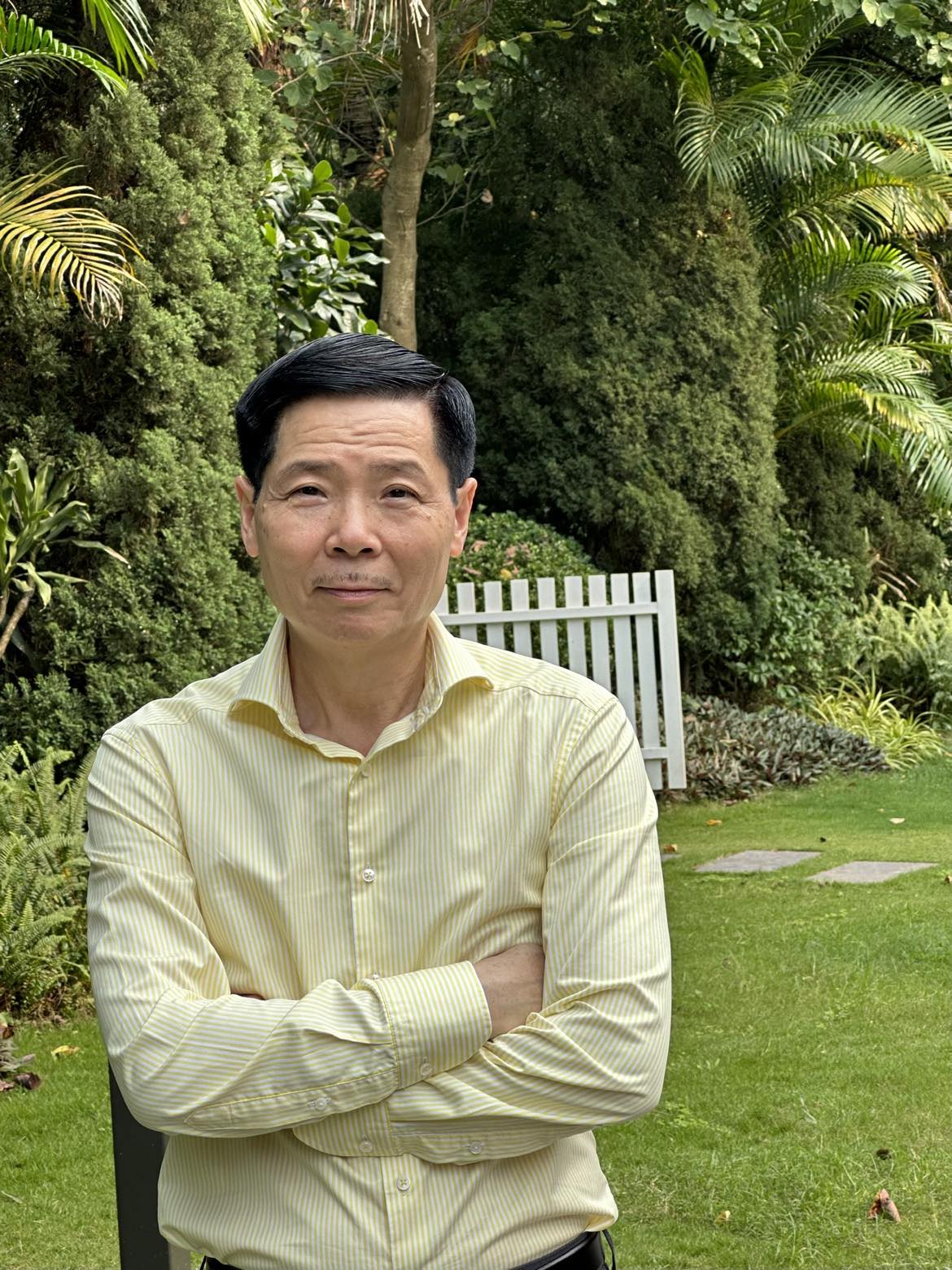
Journalist Dam Minh Thuy.
PV: You make us curious. What events did you compete in round 1?
Journalist Dam Minh Thuy: Round 1 is a 2-day test with 3 topics. Each topic is done in one session. The first topic is a long article, which has been intentionally marked with some errors by the Editorial Board. Our task is to find those errors and correct them. The second topic is 3 long articles, which we have to summarize into a short article, so that a person who does not have much time can read it and still grasp the main spirit of all 3 articles. And the last topic used in round 1 is to write a commentary on the comment "Labor in Vietnam is both surplus and shortage".
PV: Now you want to return to the labor contract regime after you were recruited? Why did you easily leave your current position, to accept the contract regime which was considered so fragile at that time?
Journalist Dam Minh Thuy: When the Magazine announced the pilot of the labor contract system, instead of the payroll system as it is commonly understood, I also thought a lot. In the end, I agreed for two reasons. The first was the working environment. I went there to take 3 rounds of exams and found that the environment at the Magazine and at the Ministry was very good. The second was the income. It was explained to me that the contract was for 1 year, but if I did well, after only 6 months the Magazine would adjust my salary. Even the unadjusted salary was already double the salary at my old place.
Later, whenever someone asked me if I should change jobs, I always advised them that I didn't know about other conditions, but if the income was double the previous one, then I should consider changing, otherwise, I wouldn't. That advice actually came from me personally.
PV: Sir, what is the difference between a contract journalist and a permanent journalist?
Journalist Dam Minh Thuy: It's quite different! But because I often look at the positive side of things, I see more good points.
PV : What are the specific points?
Journalist Dam Minh Thuy: I received a lot of enthusiastic help! People saw that I was a contract worker so they often paid attention and helped me when I needed it, even when I didn't know who to ask for help. I remember a colleague telling me how to write a news story. She said: "Here, just write where? When? What's the content there? Then sit and listen carefully to what the biggest people there say, what they say, then quote a few of the best sentences into your news story." She later became the Editor-in-Chief of the Magazine and we still keep in touch with each other until now.
PV: But the benefits are probably very different?
Journalist Dam Minh Thuy: Not much! I mentioned the salary above. The salary of contract workers like me is very easy. It is impossible to show everything. As for permanent workers, there are probably many things, because there are fixed salaries, allowances, flexible salaries, bonuses... But I don't know very well. I only know my salary. Journalists also have royalties. And I know for sure that most of my articles are rated by the leaders as being slightly better than permanent workers. I know that favor and I am very touched.
PV: So what is the basic difference between permanent employees and contract employees?
Journalist Dam Minh Thuy: Maybe it's just the benefits and the concept! Besides the benefits written on the labor contract, I almost didn't get anything else. There are cases where the benefits are very big. For example, buying a house, buying land... for example. As for the concept of discrimination, I think it's still not over until now. The newspapers I've worked for, every anniversary, Tet... I was never invited, except if there were still people who worked with me and became leaders there, then they would invite me. Sometimes I even thought, maybe my name was no longer on the list of staff there.
PV: Why do you think so?
Journalist Dam Minh Thuy: Because I remember there were times when I received my salary, I was asked to sign the pay slip, not the agency's payroll. If my name was on the list of staff, it should be on the payroll.
PV: So you don't have any questions?
Journalist Dam Minh Thuy: No! I always define that in a labor contract, one party is the hirer and the other party is the hiree. I am the hiree. That's it! I am not the owner there. Of course I understand that those agencies are State agencies and the people working there are people who receive State salaries, representing and representing the State, including the content of the contract to hire me to work. And therefore, I am not a State employee, do not have the right to represent and represent the State. I am a State employee. That's what it means!
PV: Aren't you afraid that when your contract expires, it won't be renewed or re-signed?
Journalist Dam Minh Thuy: Of course! At first, I was always haunted by the thought that if my 12-month labor contract was not renewed, I would be unemployed and living on the streets. Because of that fear, I always decided to follow two directions. One was to work hard, have many articles published, so that when the contract expired, my contract would be renewed, and two was to observe and look for new opportunities. Because of this determination, I wrote a lot of articles for newspapers. Even the leaders at my workplace knew, but they created conditions for me. Because sometimes they themselves could not guarantee me a place to renew my contract.
PV: Which newspapers did you write for back then?
Journalist Dam Minh Thuy: I wrote for Saigon Giai Phong Saturday, Tuoi Tre, Phu Nu TP. Ho Chi Minh and Thanh Nien newspapers. I liked Saigon's printed newspapers at that time because of their beautiful designs and high royalties. I remember once having an article published in the Tet newspaper, and was paid a royalties of nearly 4 million VND. That was equivalent to 1 tael of gold!
PV: Why don't you write for newspapers anymore?
Journalist Dam Minh Thuy: Because I was assigned to be in charge of a joint project between Vietnam Economic Times and Vietnam Airlines. When the project changed, we established a media company to continue the work. That is why I no longer write professionally.
PV: What is your current job?
Journalist Dam Minh Thuy We cooperated with Vietnam Television to produce the film Discovering Vietnam and several TV shows such as Late Night Stories and The Quintessence of Vietnamese Crafts.
PV: Thank you for sharing your interesting experience about journalism and I wish you continued success in your current job.
Source



![[Photo] Many advanced technologies gather at Analytica Vietnam 2025](https://vstatic.vietnam.vn/vietnam/resource/IMAGE/2025/4/4/0ef01117275d4d71b2e2a45c215ac2f8)

![[Photo] Prime Minister Pham Minh Chinh visits comrade Khamtay Siphandone](https://vstatic.vietnam.vn/vietnam/resource/IMAGE/2025/4/4/a570cc01b32d458bb9702983e78e193a)


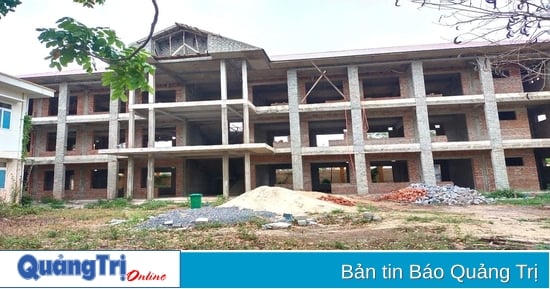

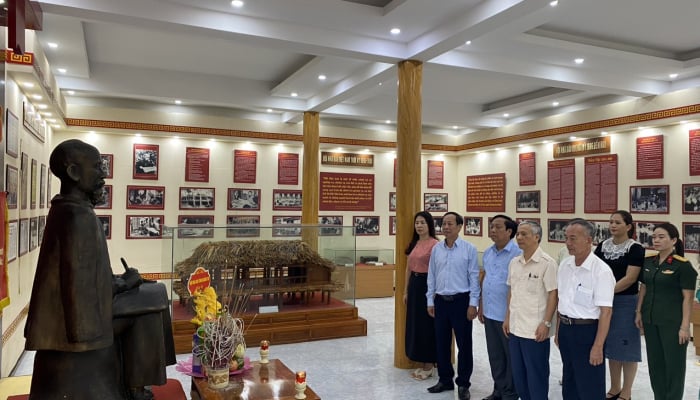

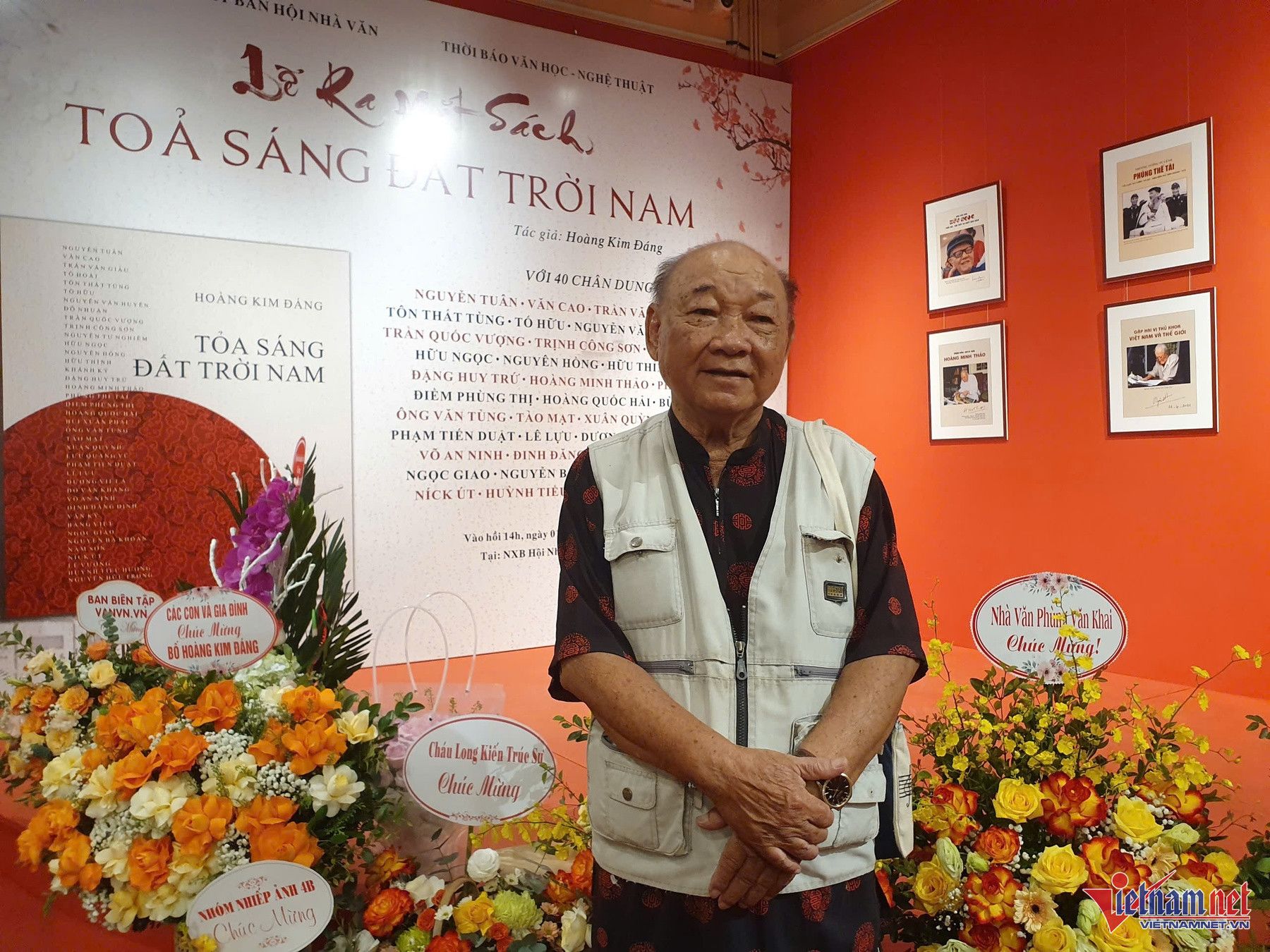








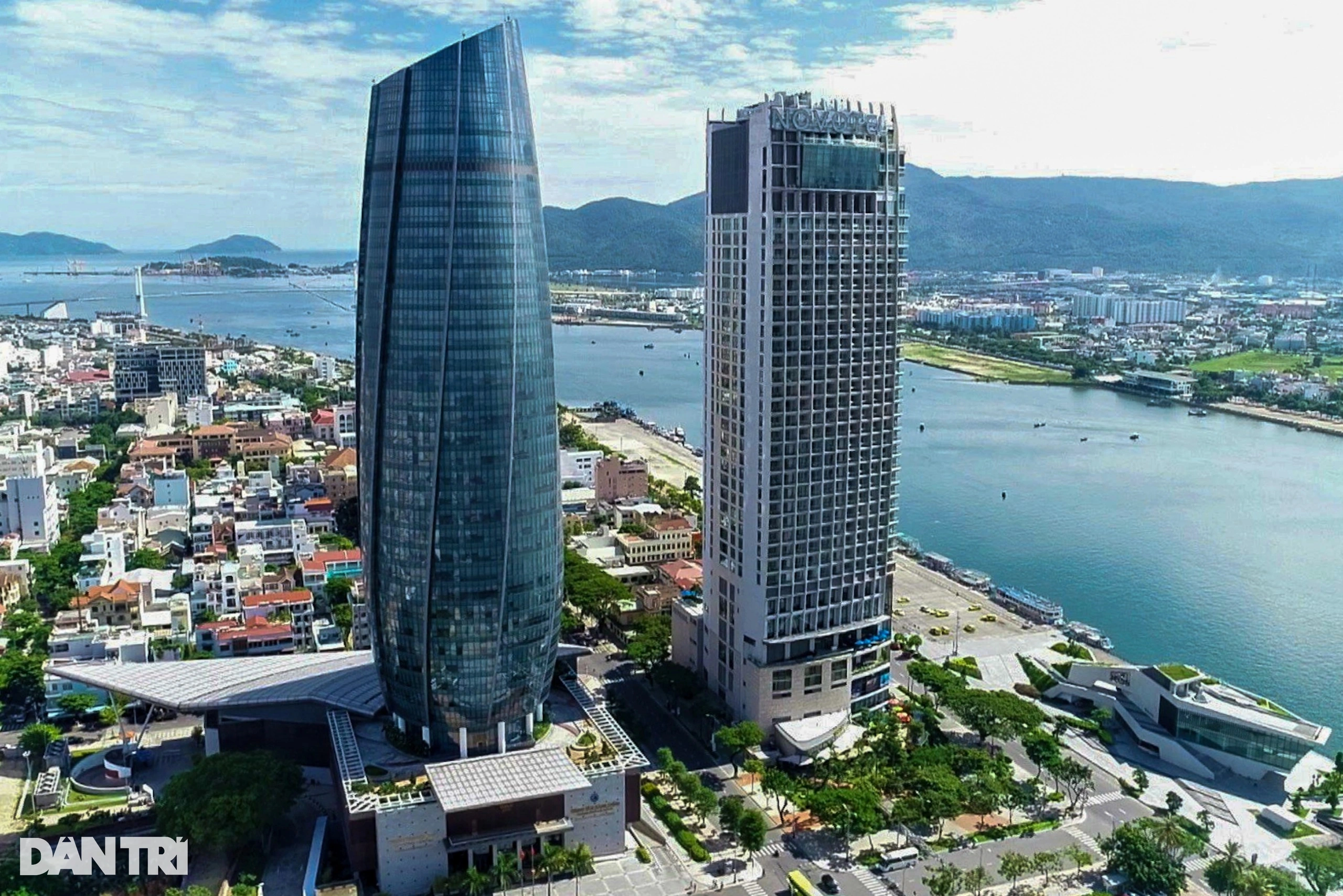










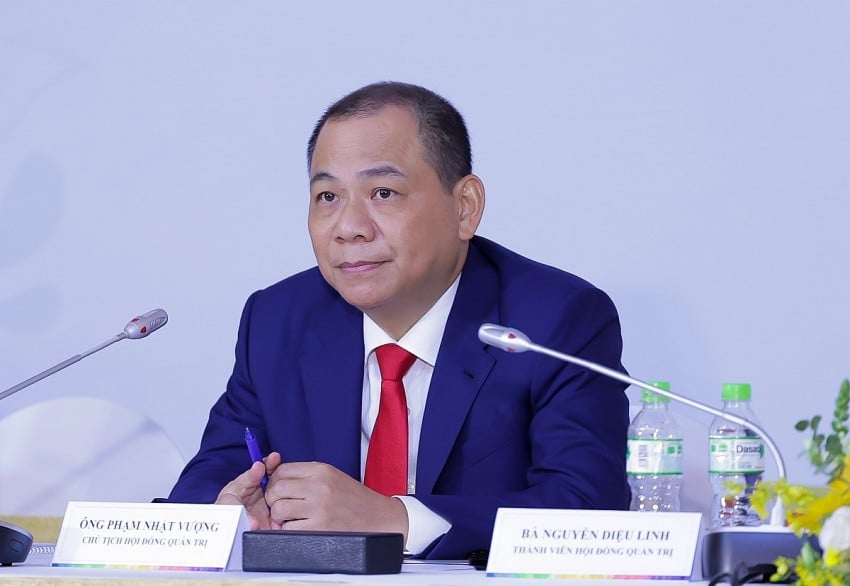



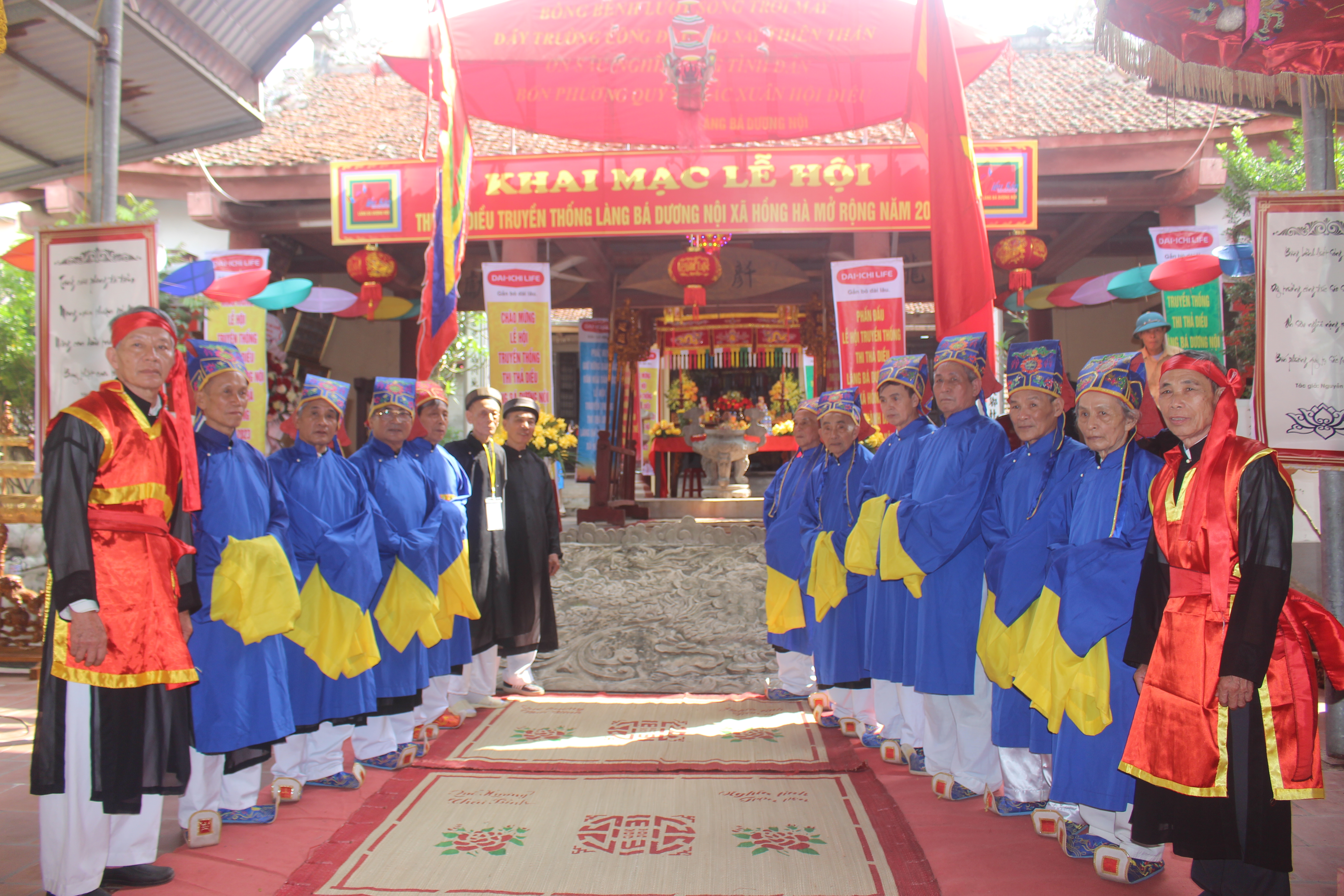

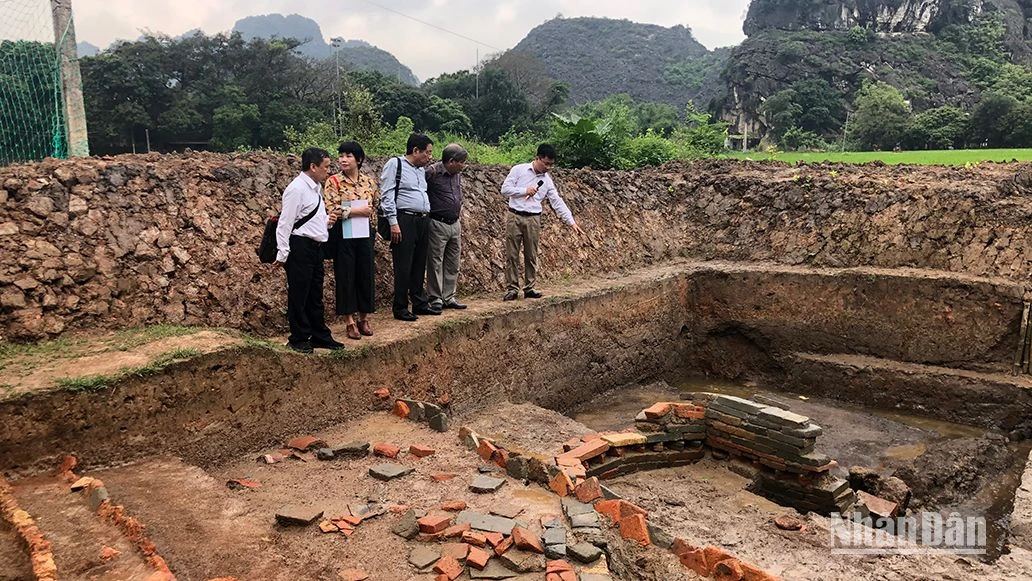










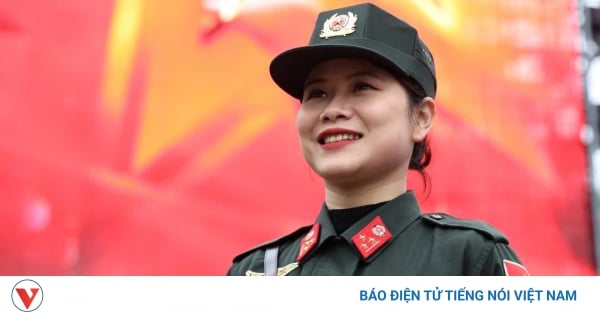






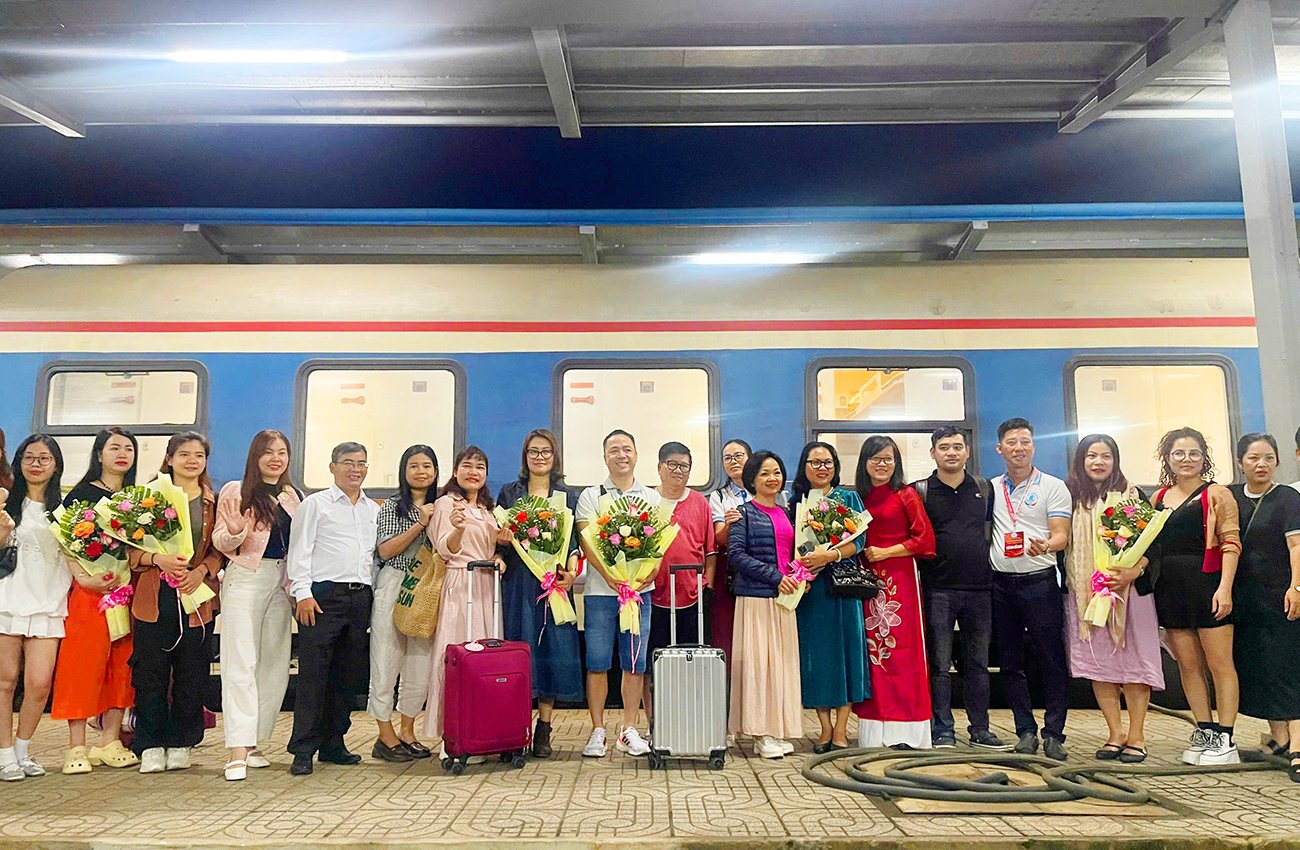
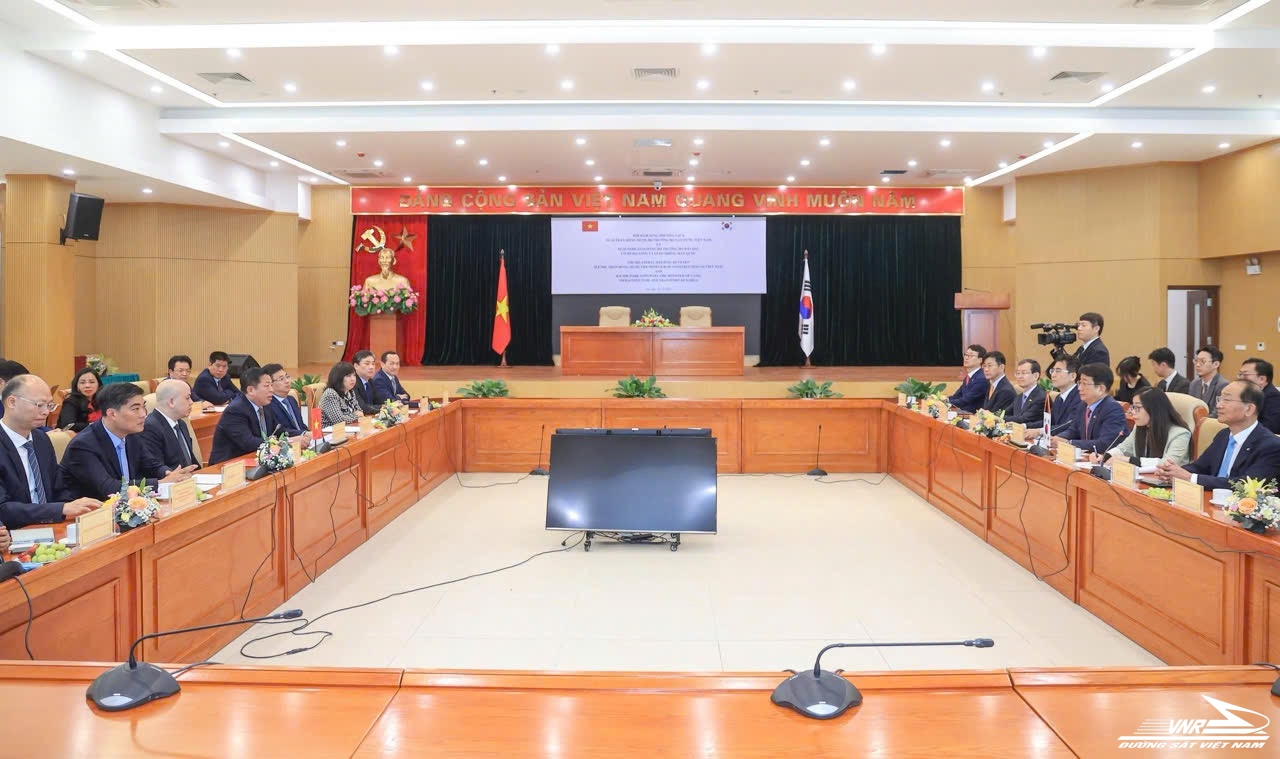
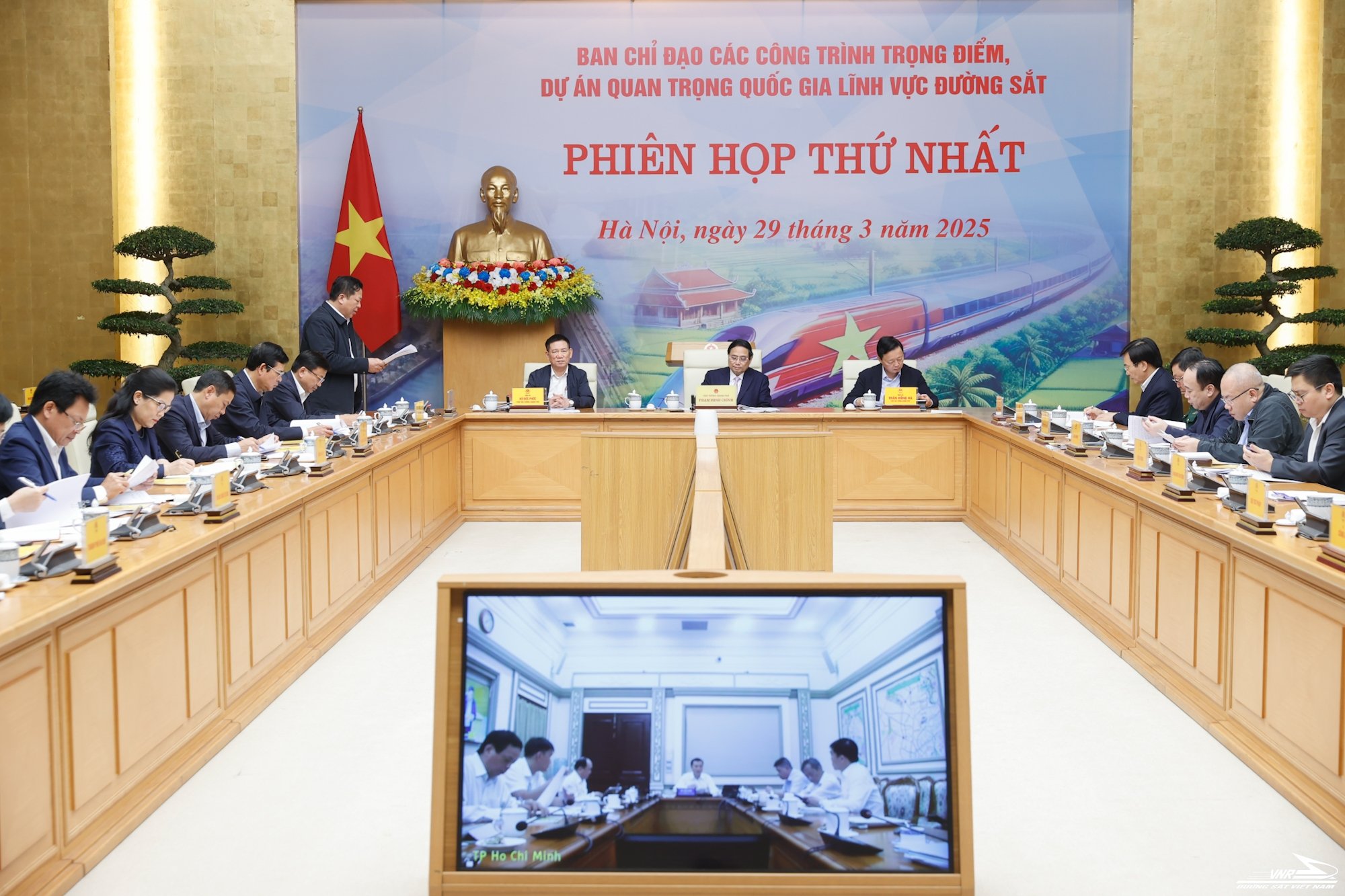






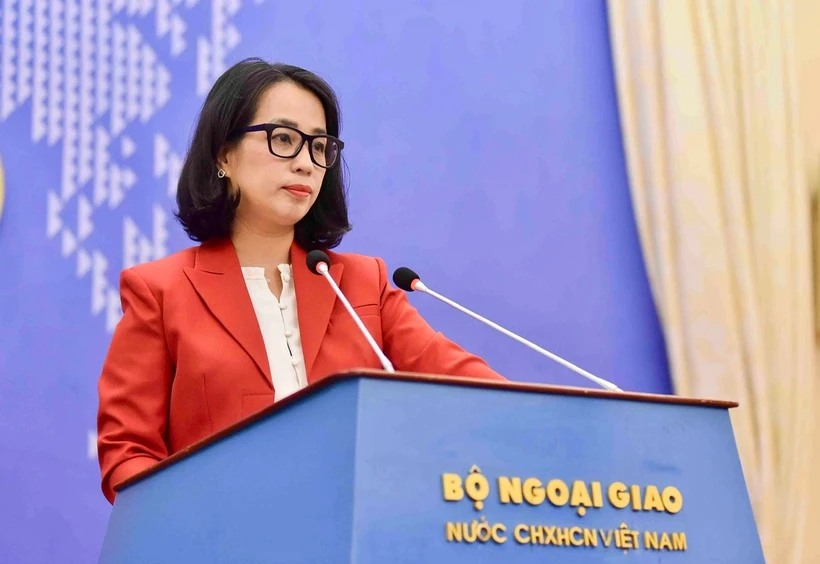

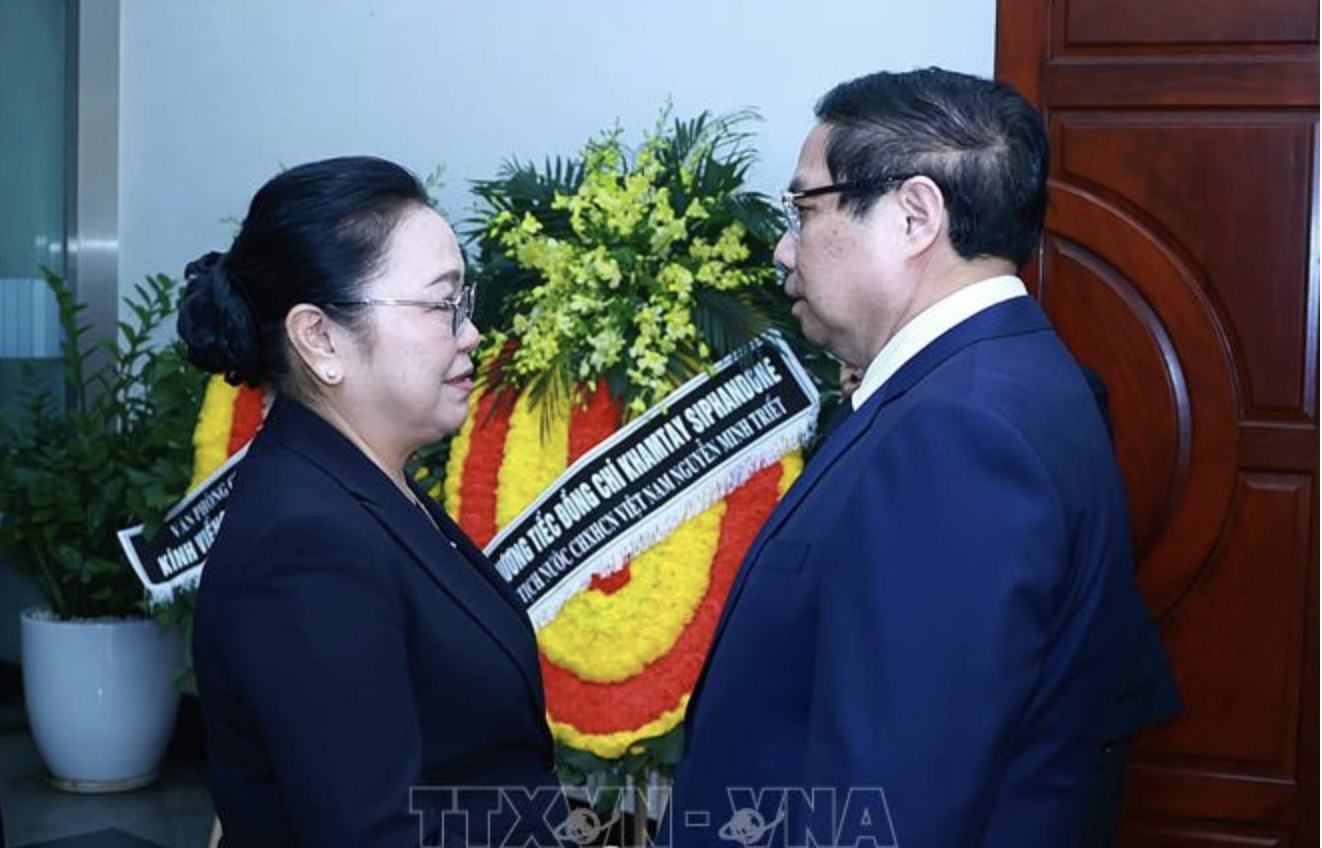











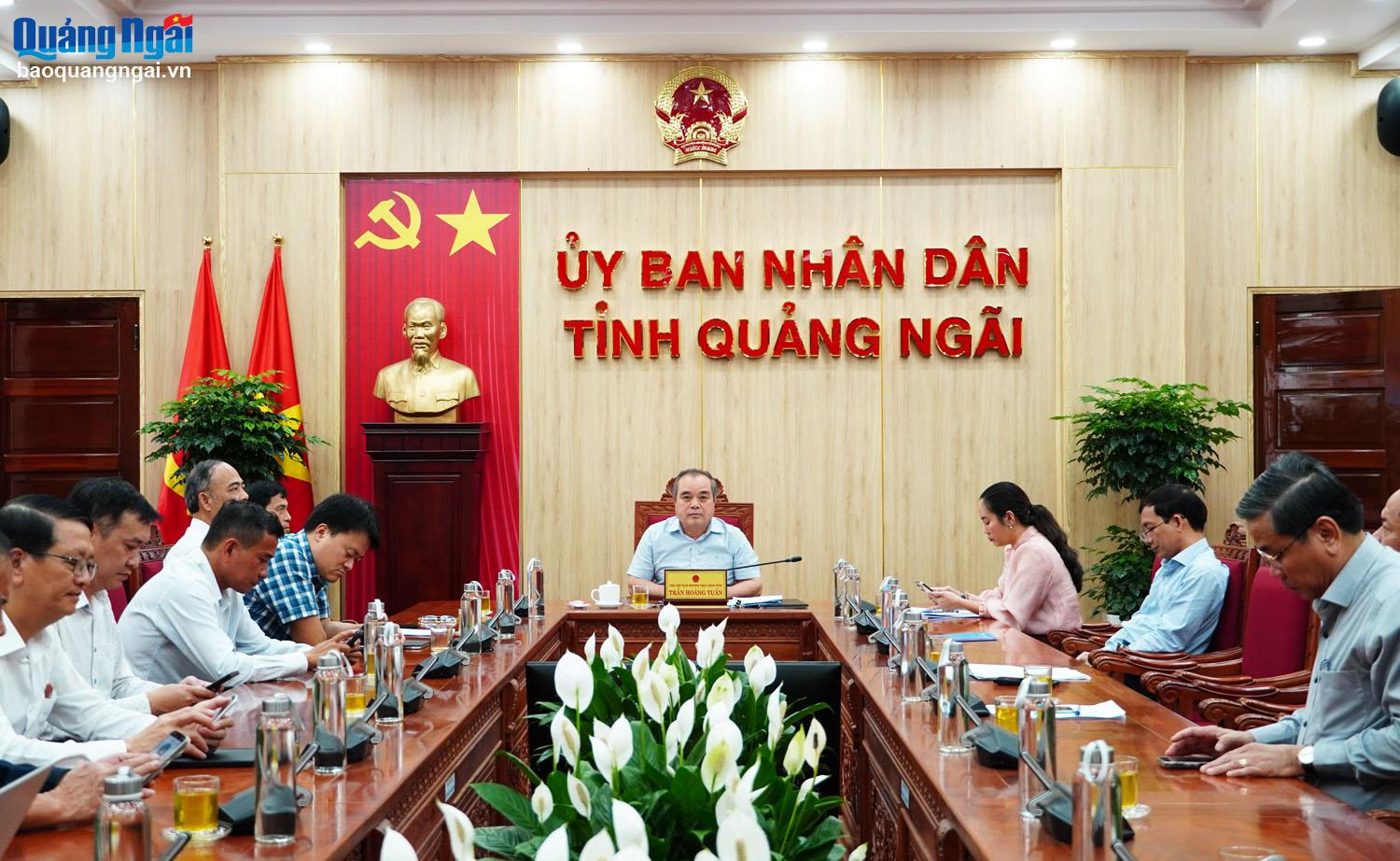














Comment (0)